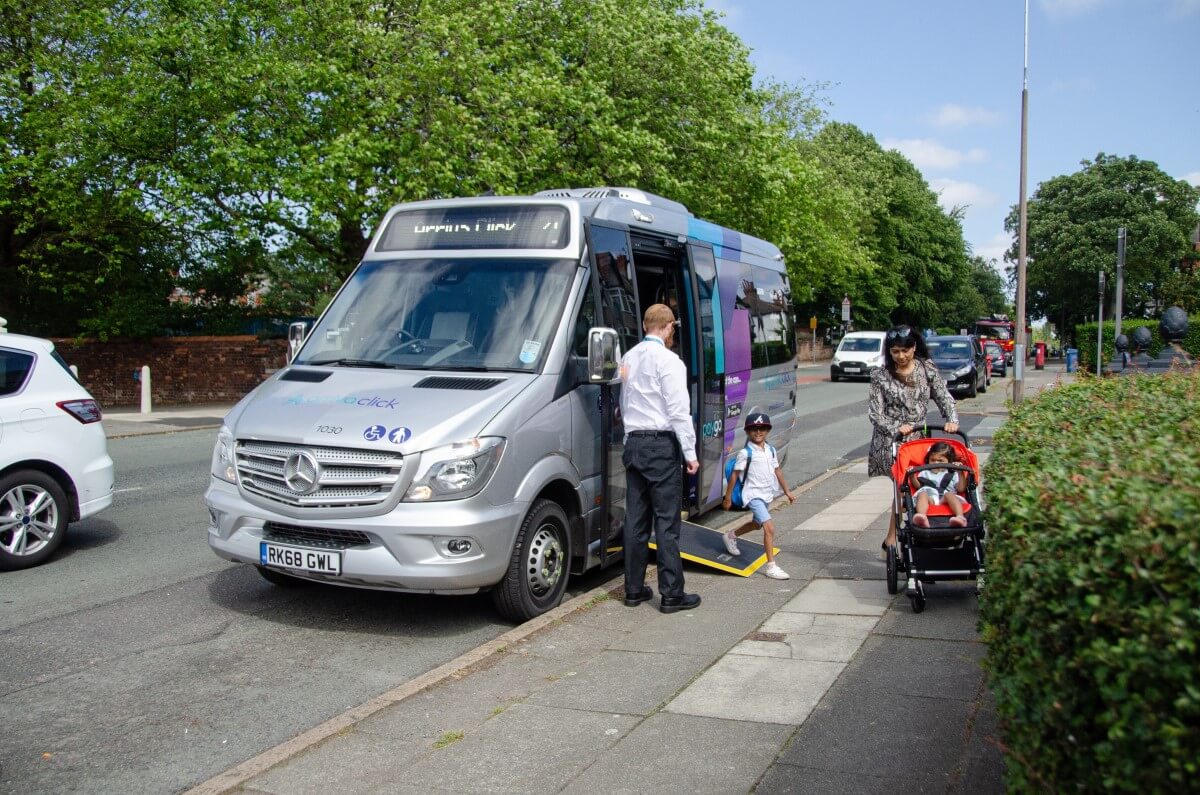Coach and bus companies are investing millions in new electric vehicles. But should you be investing in training drivers to drive them?
So you’ve got your shiny new electric bus, or a whole fleet of them, and you’re comfortable with how they work, but what happens when your driver exhibits ‘range anxiety’?
This is a new and very real phenomenon where drivers start to worry that the bus might run out of charge while they are on the route.
They may radio the office in a panic, worrying about what to do, and this in turn can be transmitted to passengers who will start to feel anxious too.
CT4N is one of the largest UK operators of battery-powered electric buses with a fleet of 13 BYD buses and 45 Optare solo and Versas. Nottingham City Council owns the vehicles and contracts CT4N to operate and maintain the fleet.
Specialist training
Tony Oldham, Operations Director for CT4N, says: “Our drivers had an initial induction course on how to drive the buses, but it wasn’t until they were a few weeks into the job that we started seeing the issues with range anxiety.
“It’s very different driving an electric bus to the old diesel one. It’s not that they can’t drive the buses, it’s just a knack of getting the regeneration right.”
Tony decided further training was needed and spoke to the provider of CT4N’s driver CPC courses Perry Preston of Leicester-based Midlands Transport Training (MTT).
In response to the needs of the market Mr Preston has written and launched the first electric bus training course in the UK.
The bespoke DCPC module aims to overcome range anxiety, teaches drivers about fast and slow charging of batteries, looks at charging safety rules, the environmental issues and benefits, hazard perception and carrying out daily checks.
It highlights the future that electric buses have in our cities and teaches the benefits of how to regenerate batteries successfully to perpetuate longer battery life.
Regeneration problem
Mr Oldham says: “This course not only fully addresses our current training needs on the ground and our drivers’ DCPC requirements, but it is a motivating and game-changing educational resource for drivers everywhere.
“The dos and don’ts of what you can and can’t do when it comes to charging is complex. It’s brilliant that our drivers are engaged and really learning from this.”
Mr Preston says: “We go along to companies and create ‘how to’ videos as part of the training package. These short videos are specific to the needs of the company and are shown alongside the DCPC training course for no extra charge to the operator.”
“There is a regeneration problem,” he says. “You can’t just plug in a plug half way round and off you go again. These buses run out of energy and come to a halt for various reasons, one of them being that drivers need educating on how they differ from a diesel bus, and how the regeneration process works.”
Stopping properly
“We explain that when you are driving the bus, as you take your foot off the accelerator, the bus will naturally slow down and you only need to use the brake in the last metre unless you’re coming up to an emergency stop.
“So if you slow down naturally without using the brakes the vehicle will recharge.”
Mr Preston explained that during the slowing down process the motor starts to rewind, which then puts energy back in the batteries. “It’s quite revolutionary,” he says.
“Drivers have been known to break down on this round trip. They’re not noticing how much energy they have got left and they are running out of charge and panicking. You can’t just run out with a can of diesel to rescue them.
Welcoming the move, Chris Wouldhave, HR Manager at CT4N says: “We have used Midland Transport Training previously for all our bespoke Driver CPC training courses and have been delighted with the feedback from the drivers. We are fully confident and very excited that this course will also deliver the same results for drivers and operators across the whole of the UK.”
Written down
So is this a problem for other operators?
This summer, Metroline launched London’s first fully electric, zero-emission double deck services. It runs both the BYD ADL Enviro400EV and the Optare Metrodecker EV.
David Lyston, Corporate Communications Officer says: “At Metroline, we’ve worked to avoid the issue of range anxiety through the way we operate the electric buses.
“At the garage where some of our new electric buses launched earlier in the summer, the buses have the minimum percentage of charge needed for that particular duty written on their duty cards, which is determined by the length of the duty and the charge.”
“This means that the driver would not even take the vehicle out if there is insufficient charge, preventing any range anxiety from developing whilst on duty.”
Comment
It’s early days for the electric coach and bus operators and this is something that may become an issue as time goes on. Think about how aware we are of our mobile phone battery. If it’s getting low we can start to become anxious about running out of charge and not being contactable.
Ultimately we can deal with the phone problem by charging it up, either with a plugged-in lead or a charge block.
For these drivers it’s not that easy and operators need to be mindful of the stress a nervous driver may be under. After all, a conscientious driver will feel responsible for getting people to places on time, as well as their accountability to their company.

























